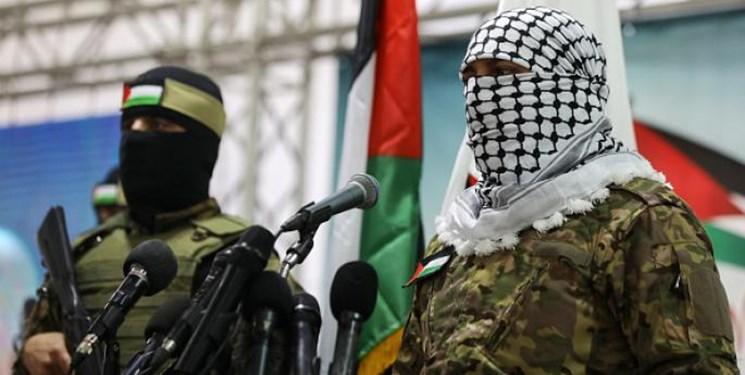The leadership of the Gaza war, called “Revenge of the Free”, was shared with the operating Room. This Room, whose nature and military-operational features became more apparent in the recent developments of occupied Palestine, is the most prominent aspect of the unity and convergence of the Palestinian resistance groups.
This matter becomes important when we know that the Zionist regime and the media, political circles, and psychological operations related to it, in the past ten years, have made various efforts and scenarios for “split, conflict and division” between the Palestinian resistance groups, especially Hamas and the Islamic Jihad movement.
The Palestinian Joint Operations Room (JOR) consists of 12 Palestinian groups under the leadership of Hamas, whose official military activity begins with the battle of “Saif al-Quds” in May 2021.
The initial core of the Joint Operations Room was founded in 2006 by two Palestinian resistance groups, namely “Izz al-Din al-Qassam,” the military wing of Hamas, and “Al-Quds Brigades,” the military wing of the Islamic Jihad movement. Forming a united resistance front to fight against the Zionist usurper regime, coordinating the activities of different Palestinian resistance groups, and developing a single political authority are this Room’s primary targets, which were emphasized in its founding document. The Joint Operations Room officially announced its existence in 2018 with the beginning of the “Great March of Return” in Gaza.
Twelve Palestinian military branches are members of the Joint Operations Room.
In the short period of its activity since its establishment, the Joint Operations Room has successfully confronted the crimes of the Zionist regime in the occupied territories, especially in Gaza. Until now, the battle of Saif al-Quds was the climax of the “show of power” of the Joint Operations Room.
The Room played a significant role in “coordinating” various military elements and branches in the recent battle with the Zionist regime, as well as “ordering” the different fronts and managing the battle scene, and “preventing scattered reactions.” The most important consequence of the presence of the Joint Operations Room in the recent Gaza battle was “changing the balance of war” and imposing ceasefire conditions on the Zionist regime through national and field consensus, which is considered a “strategic success” of its kind.
The presence of 12 military branches from different Palestinian groups in the Joint Operations Room actually “strengthened the capabilities” of the Palestinian resistance, including missile and weaponry reserves, and as a result, the quantitative and qualitative improvement of missile attacks on key targets deep in the occupied territories.
The Zionist regime was pursuing “specific targets” in the recent Gaza battle and the crimes it committed in the days leading up to it. The Zionist leaders had designed a “complex equation” to target only the Islamic Jihad movement and keep other resistance groups out of the battle equation; as the brutal attack on the residence of 3 commanders of the Islamic Jihad and the destruction of the civilian homes were within this framework to follow unilateralization of the war against one of the Palestinian groups.
In addition, the Zionist regime tried to “reverse” the existing deterrence in the occupied territories to its advantage by intensifying attacks against Islamic Jihad, one of the important pillars of the Palestinian deterrence power, and creating an atmosphere of terror among Palestinians and other resistance groups.
The Zionist regime started the war with the idea that it would face only the Islamic Jihad in the new battle. But the timely and unified response of the Palestinian resistance groups in the form of the Joint Operation Room that had a “unique field unity” changed the atmosphere, the equation, and the outcome of the war, contrary to the objectives of the Zionist regime.
The role played by the Joint Operation Room in the battle of Gaza, which all resistance groups attended, is a denial of such insinuations and projections that some groups, including Hamas, do not have a severe presence on the field in the recent battles and have different perspectives from other resistance groups in the fight against the criminal regime.
In short, the Joint Operations Room is a “great achievement” in military and operational developments in occupied Palestine. Because from an operating point of view, carrying out joint attacks by Palestinian groups is not digestible for the Zionist regime because it destroys the security and military achievements of the regime.
Considering that the main focus of the Room’s activity is currently in Gaza, it seems to be very important to adopt mechanisms to expand the scope of the Room’s move to other areas, including the West Bank, to prepare the ground for the formation of the “United and Unified Palestinian Army.”
The experience of Yemen and the Ansarollah movement, which has a unified army, is a valuable experience that can also be implemented in Palestine. By forming a united and coherent army with a single command center, it can accelerate and intensify the fight against the Zionist regime and “with strategic victories,” in the medium term, practically target the existence of the criminal Zionist regime.










0 Comments